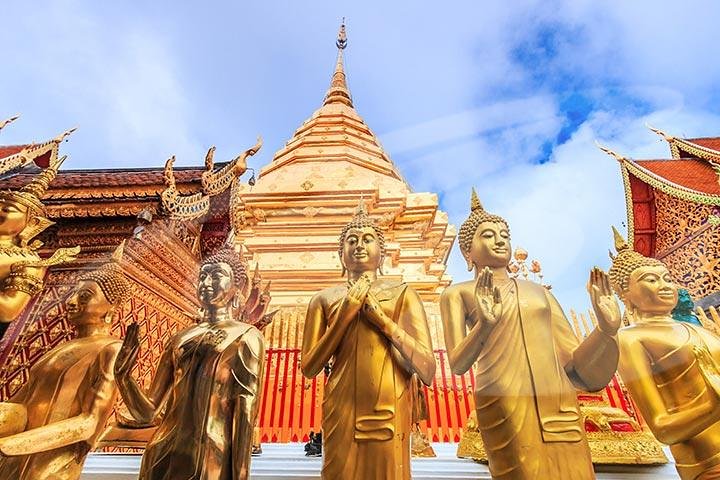Exploring the Timeless Wonders of Chiang Saen and the Golden Triangle
Embark on a journey through the ancient city of Chiang Saen and the Golden Triangle, where history and culture converge in a breathtaking landscape. Discover the rich tapestry of traditions that define this remarkable region.
A Journey Through Time: The Ancient City of Chiang Saen
As I embarked on the Golden Triangle Tour, I was filled with anticipation. The allure of exploring the ancient city of Chiang Saen, with its rich cultural heritage and historical significance, was irresistible. Nestled in the northern reaches of Thailand, Chiang Saen is a city that whispers tales of a bygone era, where the echoes of the past resonate through its ancient ruins.
Our journey began with a scenic drive through the lush mountains of Doi Tung. The crisp mountain air and panoramic views of Thailand and Myanmar set the tone for the day. As we wound our way through the verdant landscape, I couldn’t help but reflect on the intricate tapestry of cultures that have shaped this region. The mountains seemed to cradle the stories of generations, each peak and valley a testament to the enduring spirit of the people who call this place home.
Arriving in Chiang Saen, I was immediately struck by the grandeur of the ancient city walls. These formidable structures, standing as silent sentinels, have witnessed the rise and fall of empires. Walking through the ruins, I felt a profound connection to the past, as if the stones themselves were whispering secrets of the ages. Our guide, a knowledgeable and passionate storyteller, brought the history of Chiang Saen to life, weaving tales of kings and warriors, of triumphs and tribulations.
The Golden Triangle: A Confluence of Cultures
The next leg of our journey took us to the Golden Triangle, a place where the borders of Thailand, Myanmar, and Laos converge. This region, once infamous for its opium trade, has transformed into a vibrant hub of cultural exchange. Standing at the confluence of the Ruak and Mekong Rivers, I marveled at the breathtaking views and the sense of unity that permeated the air.
Our visit to the House of Opium provided a sobering glimpse into the region’s tumultuous past. The museum’s exhibits, though haunting, offered valuable insights into the complex history of the opium trade and its impact on the local communities. It was a poignant reminder of the resilience and adaptability of the people who have endured and overcome such challenges.
As we continued our exploration, we visited the Mae Fah Luang Garden, a sanctuary of tranquility and beauty. The vibrant blooms and meticulously manicured landscapes were a feast for the senses, a testament to the harmonious relationship between nature and culture. The garden, a living tribute to the Princess Mother, embodies the spirit of renewal and hope that defines this region.
A Tapestry of Traditions: The Royal Villa and Wat Phrathat Doi Tung
Our journey culminated with visits to the Doi Tung Royal Villa and Wat Phrathat Doi Tung. The Royal Villa, once the residence of the Princess Mother, is a masterpiece of sustainable architecture. Constructed from recycled pine wood and discarded teak trees, the villa stands as a symbol of innovation and respect for the environment. As I wandered through its halls, I was inspired by the Princess Mother’s vision of a better future for her people.
The final stop on our tour was Wat Phrathat Doi Tung, a temple steeped in history and spirituality. Built in 911 AD, this sacred site is revered as the oldest and holiest sanctuary in the region. As I stood before the temple, I felt a deep sense of reverence and gratitude for the opportunity to witness such a profound expression of faith and devotion.
Reflecting on my journey through Chiang Rai, I am reminded of the rich tapestry of cultures and traditions that define this remarkable region. The Golden Triangle Tour offered a unique and immersive experience, a chance to connect with the past and embrace the present. It is a journey that I will carry with me, a reminder of the beauty and resilience of the human spirit.










































